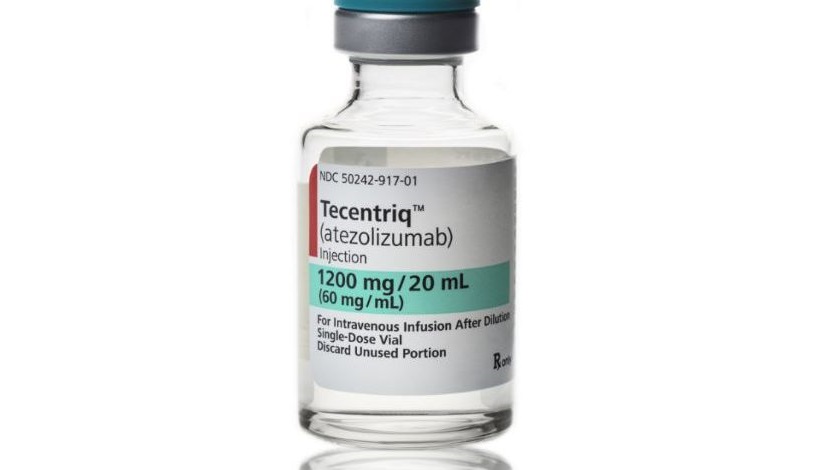Roche's Tecentriq gains new first-line lung cancer use

Roche has an inroad into the lucrative first-line lung cancer market after its immunotherapy Tecentriq gained FDA approval in a subset of patients.
Tecentriq (atezolizumab) has been approved in untreated adults with metastatic non-small cell lung cancer (NSCLC) whose tumours have high levels of the PD-L1 biomarker, with no EGFR or ALK mutations.
Approval is based on an interim analysis from the phase 3 IMpower110 study, which showed Tecentriq monotherapy approved overall survival by 7.1 months compared with chemotherapy in people with PD-L1 expressed on at least half of their tumour cells.
Roche noted that safety for Tecentriq, a PD-L1 class immunotherapy, appeared to be consistent with its known safety profile with no new safety signals identified.
Grade 3–4 treatment-related adverse events (AEs) were reported in 12.9% of people receiving Tecentriq compared with 44.1% of people receiving chemotherapy.
Unfortunately for Roche, it’s not clear whether the data will be enough to convince oncologists to prescribe Tecentriq instead of Merck & Co’s Keytruda (pembrolizumab).
Keytruda has been approved in first-line lung cancer since 2016 and last year had its label expanded in first-line lung cancer to allow its use as monotherapy in patients where 1% or more of tumour cells are expressing PD-L1.
With the wider indication Keytruda can be used without chemotherapy in nearly all the first-line NSCLC population.
This is important as it saves patients from feeling the unpleasant side effects caused by the toxicity that is so often an issue with chemotherapy.
Bristol-Myers Squibb has also managed to get its PD-1 class immunotherapy Opdivo (nivolumab) to work in first-line NSCLC by combining it with its CTLA-4 drug Yervoy (ipilimumab).
That was approved by the FDA on Friday, giving another chemotherapy-free option for patients.
Tecentriq is also approved in combination with chemotherapy in people with PD-L1 positive triple-negative breast cancer, and in certain patients with advanced bladder cancer.













